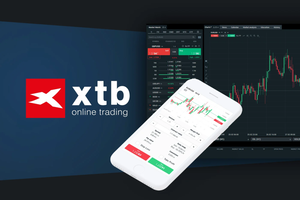The Dow Jones Industrial Average (DJIA) slipped on Friday as markets turned cautious ahead of key trade discussions between U.S. and Chinese officials.
The blue-chip index dropped 119.07 points, or 0.29%, to finish at 41,249.38. The S&P 500 edged down 0.07% to close at 5,659.91, while the Nasdaq Composite was nearly flat, ending the day at 17,928.92.
For the week, the S&P 500 declined by approximately 0.5%, the Nasdaq slipped 0.3%, and the Dow ended down nearly 0.2%
However, the sentiment is much improved at the start of this week after the U.S. and China reached a surprise agreement on Monday to significantly reduce tariffs on each other’s goods for an initial 90-day period, offering a major reprieve in their prolonged trade dispute and lifting global market sentiment.
The deal was announced in a joint statement following intense negotiations over the weekend in Geneva, where officials from both countries reported “substantial progress.”
“Both sides recognize ‘the importance of a sustainable, long-term, and mutually beneficial economic and trade relationship,’” the statement said.
The agreement marks a notable de-escalation in a trade conflict triggered by sweeping tariffs introduced by U.S. President Donald Trump, which had shaken financial markets, strained global supply chains, and raised fears of a potential recession.
Markets responded swiftly to the news. Dow futures climbed more than 2%, S&P 500 futures gained nearly 3%, and Nasdaq 100 futures jumped 3.8% Monday.
3rd party Ad. Not an offer or recommendation by Investing.com. See disclosure here or remove ads.
Major Asian indices rallied as well, with Hong Kong’s Hang Seng index rising more than 3%.
Looking ahead, investors are bracing for another important week for U.S. economic data, watching closely for signs that leadership in the equity market may be shifting away from defensive sectors—a potential signal of increased risk appetite.
Although hard data this year has pointed to a resilient economy, sentiment indicators and other forms of “soft data” have painted a less optimistic picture.
Tuesday’s release of the April consumer price index (CPI) will offer an updated look at inflation, while Thursday’s retail sales figures will provide insight into consumer spending trends.
The data comes amid lingering uncertainty over the economic impact of tariffs, which many fear could push prices higher and weigh on growth.
If inflation runs hotter than expected and retail sales fall short, it could raise fears of “stagflation”—a combination of weak growth and persistent inflation that tends to weigh on equities, said Matthew Miskin, co-chief strategist at Manulife John Hancock Investments.
Some market participants noted that the Federal Reserve acknowledged these risks during its latest policy meeting. The central bank kept interest rates unchanged and flagged increased risks of both elevated inflation and rising unemployment.
Retail giants Walmart, Home Depot to report earnings Beyond economic data, the week ahead will bring a fresh round of corporate earnings. The reporting season remains active this week for small- and mid-cap (SMID) companies, while it begins to taper off for the S&P 500.
This week, attention will turn to a select group of major retailers set to report results. Retail heavyweight Walmart (NYSE:WMT) is set to report, whose results are expected to shed light on consumer spending trends and the impact of import costs.
Other high-profile companies that will report this week include Palo Alto Networks (NASDAQ:PANW), Home Depot (NYSE:HD), Baidu (NASDAQ:BIDU), and Snowflake (NYSE:SNOW).
According to RBC Capital Markets strategists, while the earnings outlook has steadied, its impact on U.S. equities has diminished, leaving markets looking for a new catalyst to drive further gains.
“Sunday night’s price action in the futures markets highlights how trade war de-escalation can serve as the next catalyst for now, but we think the secondary impacts of recent policy disruption still ultimately matter to the stock market,” the broker said in a note.
Last week’s earnings calls continued to underscore the growing effects of recent policy uncertainty, with the upcoming reporting season shaping up to be a crucial one, RBC added.
What analysts are saying about U.S. stocks JPMorgan: “At the start of the U.S. outperformance, 15 years ago, U.S. traded broadly at par P/E multiple vs the Rest, and now is at 43% premium. U.S. weight moved to 70%+ currently, from below 50% in 2010. Given all the above, we continue to think the risk-reward for International markets could be asymmetric in a good way this time around, ie they might not be a high beta in times of derisking, and could act positively during periods of improving sentiment.”
RBC Capital Markets: “We highlight how capex trends have already been weak in most parts of the U.S. equity market aside from the biggest market cap names in the S&P 500, and how the growth-oriented sectors, as well as several trade-sensitive industries, have been most aligned with trends in Trump’s net favorability. We’d expect these new “Trump trades” to outperform in the short term if further, substantial progress on trade policy is made.”
Evercore ISI: “With the Bear Market over, a New Bull bolstered by Capitulation, a peaking of Uncertainty as well as cheap Oil, yet Policy handcuffed and the Inflation/Growth/Debt mix a headwind while stocks are expensive and a contentious Debt Ceiling debate lies ahead, what to do?
Strategically, we remain buyers on weakness of “Fallen Angels” in the Structural Bull Market Outperform sectors - Communication Services, Consumer Discretionary and Info Tech, primed to lead once more.”
.













